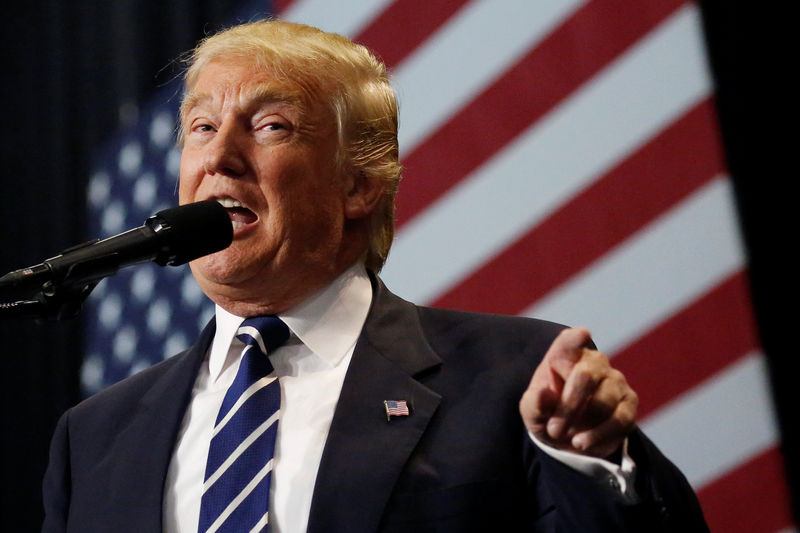Investing.com’s stocks of the week
By David Morgan
WASHINGTON (Reuters) - A sweeping tax reform proposal meant to boost U.S. manufacturing faces mounting pressure from industries that rely heavily on imported goods as President-elect Donald Trump and congressional Republicans work to finalize new tax legislation.
As Republican members of the House of Representatives tax committee prepared to discuss tax reform this week, the panel received a letter from 81 industry groups rejecting the proposal known as "border adjustability."
A lynchpin of the House Republican "Better Way" agenda and viewed favorably by Trump's team, the policy would help manufacturers by exempting export revenues from corporate taxes. But it would tax imports, hitting import-dependent industries.
House Republicans hope to persuade Trump to back the policy as a means to fulfill his campaign pledge to create blue-collar jobs. This week, incoming Trump White House Chief of Staff Reince Priebus expressed support for the approach as a possible alternative to tariffs.
Trump and House Republicans have not reached agreement on border adjustability but could iron out most of their remaining differences on tax reform in two to three weeks, ahead of the Jan. 20 inauguration, former Trump adviser Stephen Moore told reporters in Michigan.
In a Dec. 13 letter to House Ways and Means Chairman Kevin Brady and incoming top Democrat Richard Neal, groups representing the auto and retailing industries, among others, said: "Companies that rely on global supply chains would face huge business challenges caused by increased taxes and increased cost of goods."
They warned of "reductions in employment, reduced capital investments and higher prices for consumers" as potential consequences. "The Better Way tax reform proposal, without the border adjustment provision, can provide the basis for the strong economic growth we all seek," it said.
Border adjustability has come under fire from Koch Industries, the private conglomerate controlled by billionaires Charles and David Koch, who support Republicans and other conservatives in Congress.
Advocates of border adjustability say the House tax plan would collapse without the more than $1 trillion in revenues the provision would raise to help pay for tax cuts.
In a statement, Brady urged companies to focus on the entire plan, which would cut the corporate tax rate to 20 percent from 35 percent and end taxation of U.S. corporate profits overseas.
Neal said he was encouraged that Republicans are considering incentivizing manufacturing and exports but added: "There are genuine concerns that this could result in an increase in consumer prices."
